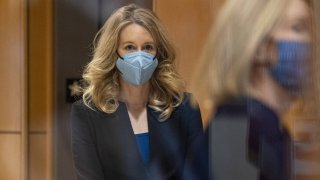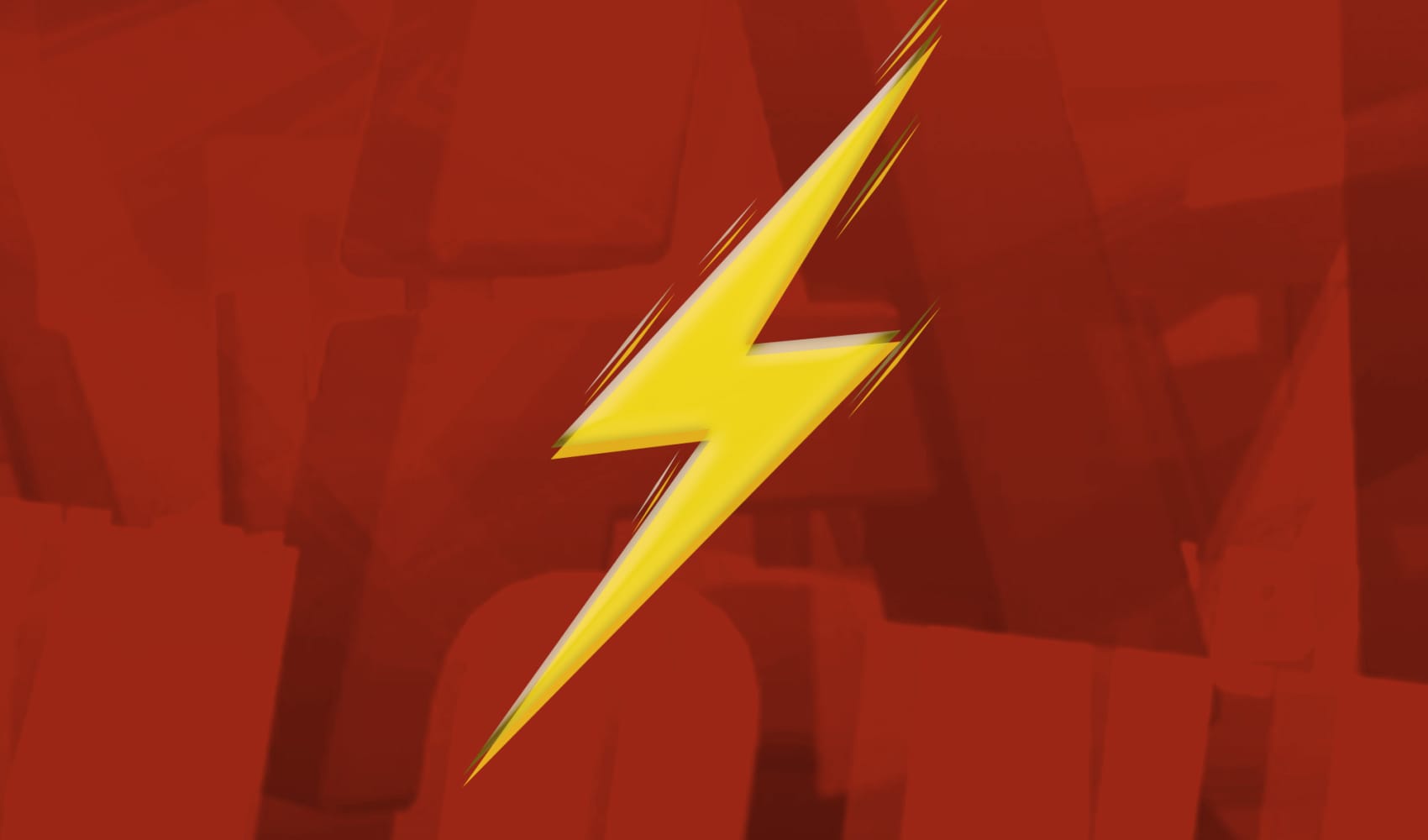
- Elizabeth Holmes testified that miniaturizing lab tests "was a really big idea."
- Holmes, in her second day of testimony, admitted to the jury that Theranos never had a partnership with the Department of Defense.
- The former CEO is facing 11 counts of wire fraud and conspiracy to commit wire fraud.
SAN JOSE, CALIF. -- Elizabeth Holmes took mostly easy questions from her defense attorney on Monday, as the former Theranos founder was given the stage to tout the bold aspirations she had for her blood-testing company ahead of what is certain to be a heated cross-examination.
On her second day of testimony in her criminal fraud trial, Holmes laid out promising partnerships with pharmaceutical companies, the Department of Defense and Stanford University.
"We thought this was a really big idea," Holmes told jurors. "These robots that are used in the traditional lab as far as we know had not been miniaturized to run in a device that could be put at the point of care."
Holmes, 37, made a surprise appearance on the witness stand on Friday after the prosecution spent 11 weeks calling 29 witnesses, ranging from ex-employees and investors to lab directors and business partners. On Monday, the public was geared up to hear from Holmes in what will be a holiday-shortened week at the courthouse in San Jose.
Journalists, onlookers and friends of Holmes began lining up outside the courthouse gates as early as 3 a.m. California time. The doors to the courthouse opened at 7:30 a.m. A total of 79 tickets were handed out, leaving dozens of people waiting outside without a chance to watch Holmes' testify in person.
Holmes arrived arm in arm with with her partner, Billy Evans, and her mother. At least nine friends and family members, including Evans' mother, were part of Holmes' entourage.
Money Report
Wearing a blue dress, Holmes took the stand introducing herself to the jury: "My name is Elizabeth Holmes," she said, in her signature baritone voice. Her testimony lasted about two hours.
Holmes faces 11 counts of wire fraud and conspiracy to commit wire fraud. She pleaded guilty and has denied any wrongdoing. She faces up to 20 years in prison if convicted.
Get a weekly recap of the latest San Francisco Bay Area housing news. Sign up for NBC Bay Area’s Housing Deconstructed newsletter.
Holmes' attorney, Kevin Downey, ran the former Theranos CEO through a series of questions that also highlighted the company's work with major drugmakers like AstraZeneca, Merck and Pfizer as well as the Mayo Clinic.
"We believed that our product could be used by pharmaceutical companies to help get better insight into how a drug could work and help speed up the amount of time it took to run a study," Holmes said.
The jurors were shown a slide from 2009, titled "completed successes." Downey asked Holmes what she counted as a success when it came to working with pharmaceutical companies.
"A success was we had successfully achieved the objectives of the program," she responded, occasionally looking to the jury box on her right when explaining a scientific term.
While prosecutors have painted Holmes as a deceitful leader who intentionally misled employees, investors and patients, Downey is giving Holmes the space to try and recast herself as a young, aspiring entrepreneur with a grand idea that she wanted to make a reality.
Holmes spoke about Theranos' relationship with Pfizer and Schering-Plough, but she wasn't asked to address claims that her company forged their logos on lab reports to make them appear legitimate. Government witnesses, including Pfizer scientist, Dr. Shane Weber, said they never approved of Theranos' use of the Pfizer logo.
Holmes did admit Theranos never had a partnership with the Department of Defense. Prosecutors allege Holmes misled investors by claiming Theranos was working with the military. Witnesses such as hedge fund manager Brian Grossman said they were told by the company that the technology was being used on the battlefield.
Holmes testified that Theranos wanted to partner with the DoD in 2008 and 2009 on several programs.
"One was seeing whether there were markers in the blood that could predict PTSD, another was associated with diabetes management," she said. "Another was dealing with infection with trauma patients."
Holmes' testimony was delayed nearly two hours, though no explanation was offered to the courtroom. Downey, an Assistant U.S. Attorney, Jeff Schenk and U.S. District Court Judge Edward Davila were not inside the room during that time.
Holmes will return to the witness stand on Tuesday, and court will be in recess the rest of the week for the Thanksgiving holiday. Prosecutors will have their opportunity to cross-examine Holmes after the defense concludes its questioning.






